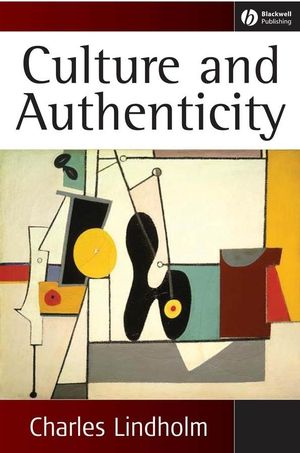Culture and AuthenticityISBN: 978-1-4051-2443-0
Paperback
186 pages
December 2007, Wiley-Blackwell
 This is a Print-on-Demand title. It will be printed specifically to fill your order. Please allow an additional 10-15 days delivery time. The book is not returnable.
Other Available Formats: Hardcover
|
||||||
Sudhir Kakar, INSEAD, Fontainbleau, France
“No concept is more defining of the paradox of modernity
than authenticity. In this lucid text Lindholm, from a stance of
anthropological respect, proves an ideal guide to its myriad
consequences.”
Daniel Miller, University College London
“Through a wealth of examples Charles Lindholm probes the
cultural currency of ‘authenticity,’ how individuals
and groups invest in goods and values as diverse as authentic food,
authentic art, music and dance, or authentic roots and national
identities. This is a stimulating and suggestive foray in
psychological anthropology.”
Michael Donnelly, Bard College
“Lindholm brings a sharp sense of history, the full range
of the best contemporary anthropology, and a quick wit to the topic
of culture and authenticity, in this very readable and thoughtful
book.”
Richard Wilk, Indiana University
“During the past two decades, the issue of identity, its
politics, the search for authenticity and roots has become
explosively present on a world scale. This book is the first to my
knowledge to have directly taken up the question of the nature of
authenticity in anthropology and among the people that
anthropologists study. It is a timely as well as systematic
discussion of one of the crucial issues of our time. The book
should be required reading for researchers and students
alike.”
Jonathan Friedman, Lund University
“In this beautifully written and accessible book, Charles
Lindholm, a renowned anthropologist, dares to bring us back to the
days of a broad comparative study of culture. Lindholm provides an
insightful, sweeping account of authenticity across time and space,
in chapters that cover a wide range of topics, such as art,
cuisine, ethnicity, citizenship, and religious fundamentalism. The
underlying message of this important book is that the reports of
the death of the authentic in the post-modern world have been
greatly exaggerated. Dramatic social change and globalization have
only intensified the on-going human quest for tradition and the
elusive anchors of home and hearth.”
Roy Richard Grinker, George Washington University



